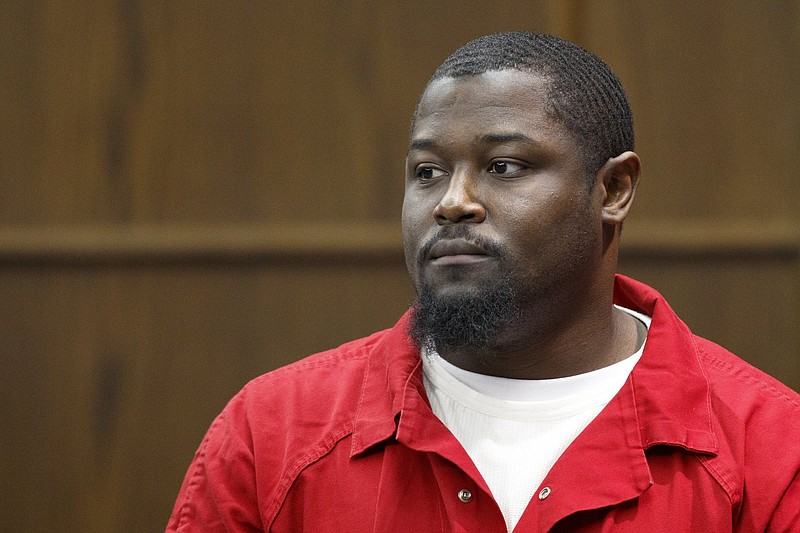After dismissing it a few weeks ago, a judge has reopened a Chattanooga man's exoneration bid in a 2010 murder case after the defense hired an expert to discuss previously undisclosed phone records.
Advocates for Unjolee Moore say phone records show the 32-year-old was about eight miles away from the British Woods Apartments when Bernard Hughes was killed during a 2010 robbery, and they're arranging a new court date so a private investigator can testify in detail about Moore's movements on the night in question.
Prosecutors never used the records when they secured murder and attempted robbery convictions against Moore in 2013, and one of Moore's appointed trial attorneys testified in August that he didn't know about the records at the time, said Moore's current lawyer, Daniel Murphy.
None of that swayed Hamilton County Criminal Court Judge Don Poole, who rejected Moore's post-conviction argument in a 26-page memorandum in late September. Among other things, Poole said phone records on their own "do not establish the petitioner was not at the scene."
Poole vacated his order shortly after Murphy filed a motion to reconsider on Oct. 11 and attached an affidavit from Glen Buckley, of Blackwatch Investigation in Memphis. Poole wrote the "exculpatory nature of the cellphone data was not apparent from the raw data." Exculpatory means any evidence that is potentially helpful to the accused as they fight criminal accusations.
Buckley, who used to be responsible for all electronic forensic investigations at the Jackson (Tenn.) Police Department, said Moore's cellphone should have connected to a cell tower closer to the murder scene given the later time of day - 11:30 p.m. - and therefore the lower volume of phone traffic.
"This would lead me to believe and certainly provide reasonable doubt that the defendant was not at the crime scene during the time of the incident," Buckley wrote. "My opinion is based on the limited data which was provided by the State to [Moore's] attorney. More precise mapping can be done if additional data is made available by either the state or the service provider."
Supporters with Concerned Citizens for Justice said the records placed Moore at 1521 Riverside Drive at 11:26 p.m. and again at 11:29 p.m. That address is 7.7 miles away from the scene of the 2010 robbery-turned-slaying, which reportedly started at 11:30 p.m.
Prosecutors declined to comment Monday, which is common in pending cases.
During the hearing in August, when Murphy presented medical records of documented lacerations around Moore's wrists and swelling around his eyes, prosecutors countered that booking photos from the same night of Moore's interview didn't show any injuries. Assistant Executive District Attorney Cameron Williams also said Moore's defense based its argument on the phone records off handwritten notes "that they have no idea what they say."
According to trial testimony, Timothy Westfield, Hughes, Cindy Cross and Myra Collier were inside Hughes' place at British Woods Apartments when a knock at the door brought Hughes outside around 11:30 p.m. Hughes fought with at least two men, and Westfield came to help but was knocked unconscious. When he came to, Hughes was dead from two gunshot wounds, and Westfield had been shot in the hand.
Moore was one of four men arrested on charges of attempted especially aggravated robbery and felony murder.
Without eyewitnesses or DNA evidence linking him to the scene, a jury convicted Moore in 2013 on the strength of a confession in which he admitted to being the getaway driver. But his supporters say a detective beat and coerced that confession out of Moore, and he's been appealing his life sentence ever since.
Specifically, Moore says Chattanooga police detective Michael Wenger handcuffed him to a chair, hit him and coerced him into confessing during a 2010 interview that lasted several hours but was only partially recorded. Also, Murphy argued in August that Moore was wrongfully convicted because ineffective appointed lawyers didn't call key alibi witnesses and didn't get key evidence from prosecutors until the eve of trial.
Contact staff writer Zack Peterson at zpeterson@timesfreepress.com or 423-757-6347. Follow him on Twitter @zackpeterson918.
